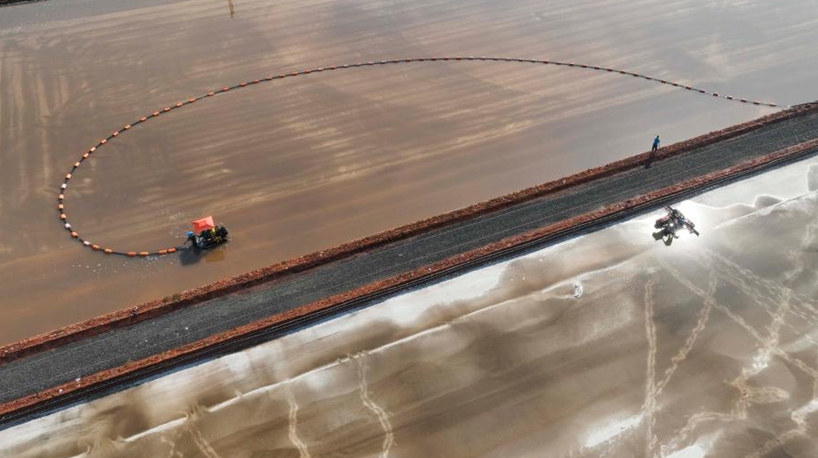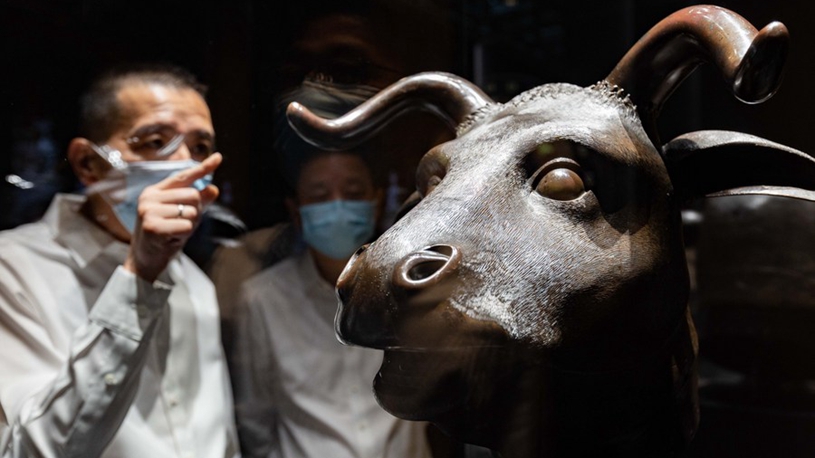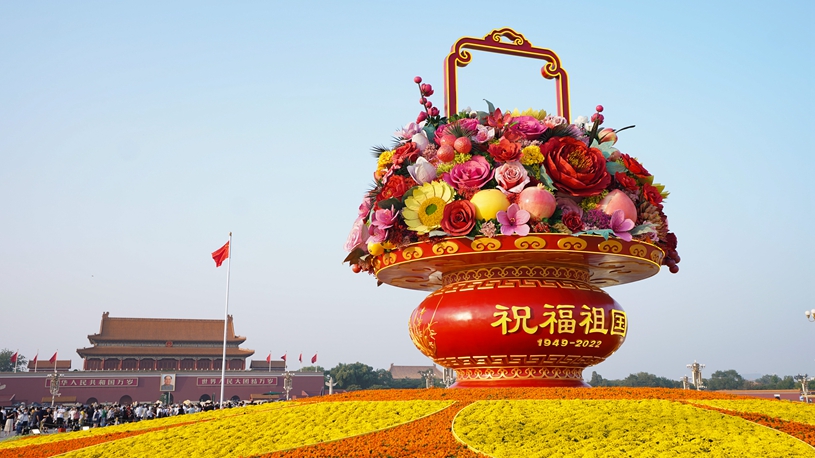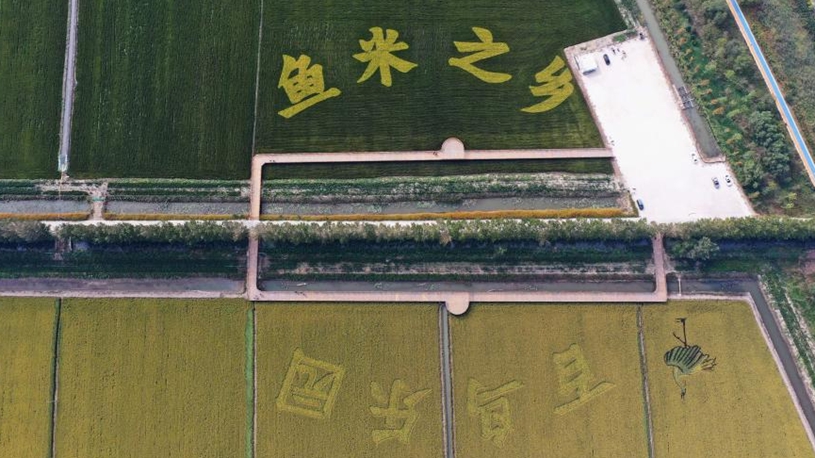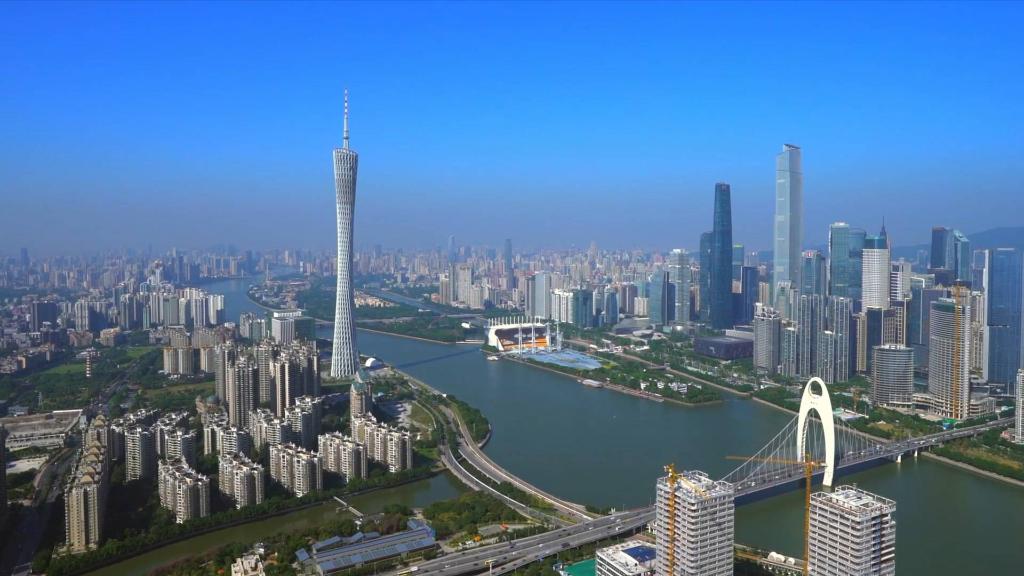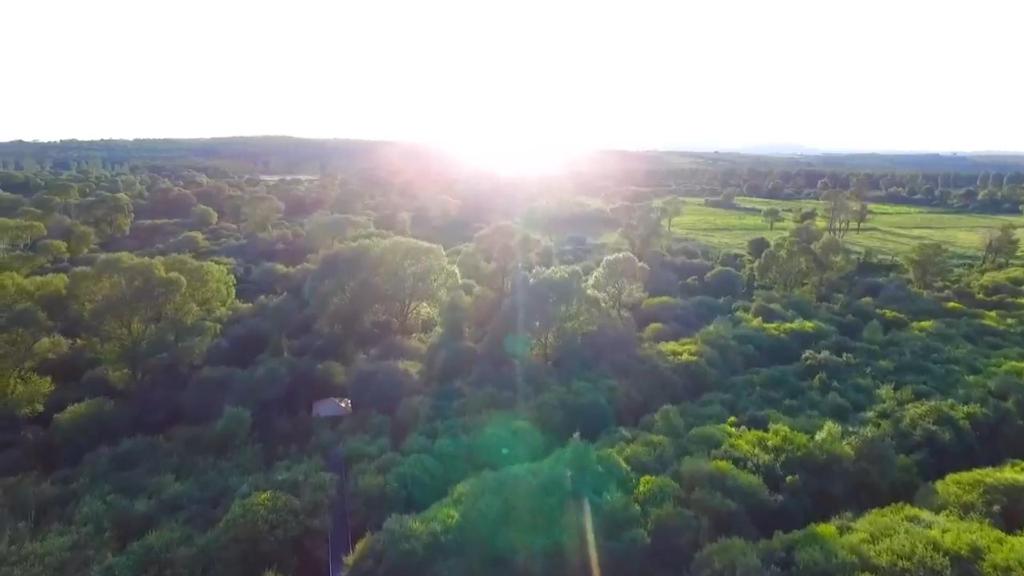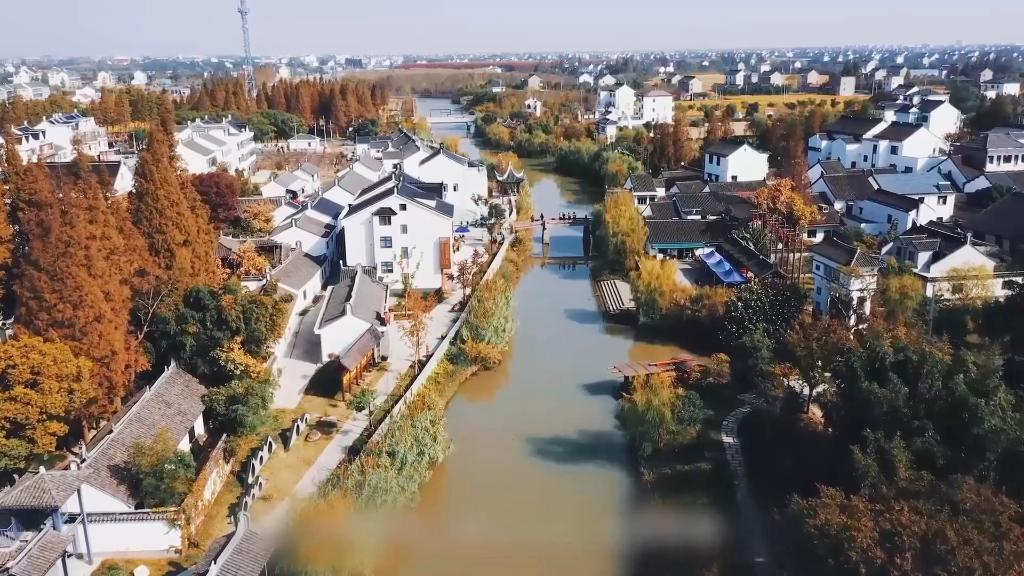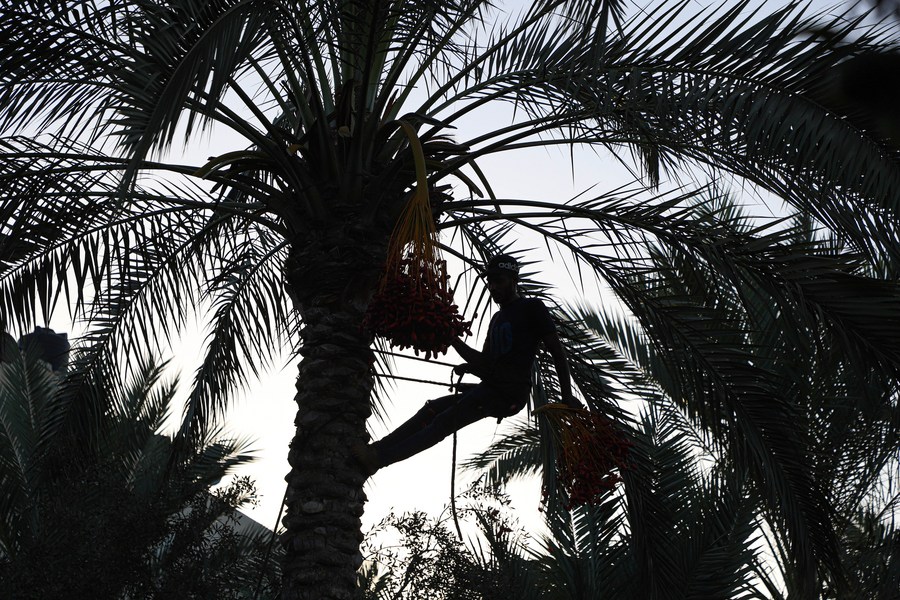 A Palestinian farmer harvests dates from a date palm tree during the harvest season in the city of Dir al-Balah in the central Gaza Strip, Oct. 2, 2022. (Photo by Rizek Abdeljawad/Xinhua)
A Palestinian farmer harvests dates from a date palm tree during the harvest season in the city of Dir al-Balah in the central Gaza Strip, Oct. 2, 2022. (Photo by Rizek Abdeljawad/Xinhua)
Date farming in Gaza is tasting a bitter harvest season under the impact of climate change. Local experts called for government efforts to brace farmers for more volatile production in the future.
by Sanaa Kamal
GAZA, Oct. 2 (Xinhua) -- A much-needed harvest has not arrived for date palms in the Gaza Strip through September, which local farmers said is another evidence of the tangible impact that climate change has on their livelihood, following the poor pollination in spring.
Ahmed Baraka, a 70-year-old farmer from Dir al-Balah in central Gaza, said about 40 percent of his 300 date palms did not bear fruit this season.
"This harvest season is the worst in decades ... the climate change contributed greatly to the failure of pollinating palm trees," the father-of-six told Xinhua.
Considering this year's delayed harvest season, farmers worried that if it ends in time in mid-October, the gross yields of this sweet household fruit could be bleak.
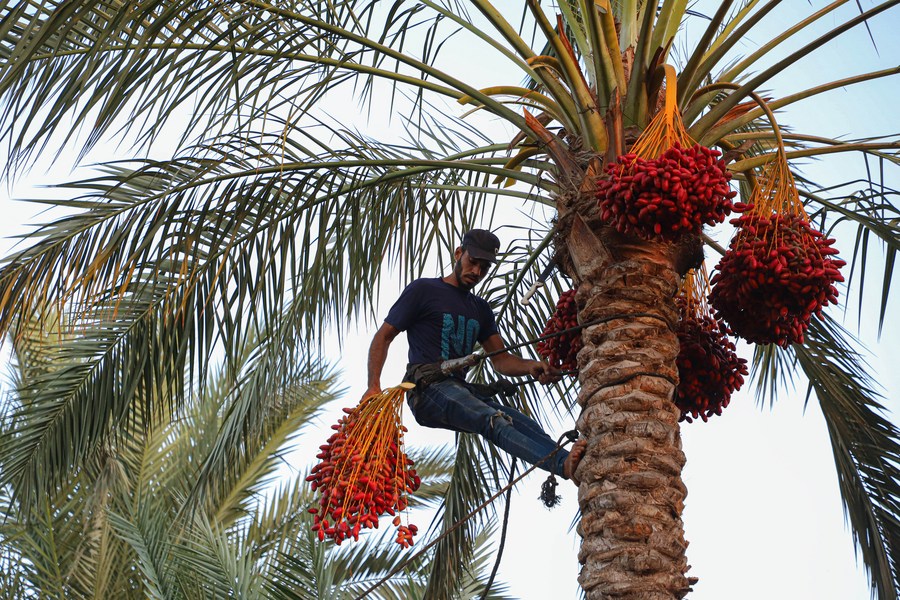 A Palestinian farmer harvests dates from a date palm tree during the harvest season in the city of Dir al-Balah in central Gaza Strip, Oct. 2, 2022. (Photo by Rizek Abdeljawad/Xinhua)
A Palestinian farmer harvests dates from a date palm tree during the harvest season in the city of Dir al-Balah in central Gaza Strip, Oct. 2, 2022. (Photo by Rizek Abdeljawad/Xinhua)
In Gaza, Baraka said, palm trees are usually pollinated in early spring when the weather gets warmer and not rainy, but this year the winter cold wave had extended well into March and April, resulting in a much shorter pollinating period.
"Because of this, I am afraid I will have heavy financial losses instead of profits," the elderly man complained, expressing his fear of not being able to pay the salaries of his 30 workers.
"Normally, the coastal enclave produced about 15,000 tons of date, while this year it will not exceed 10,000 tons," Adham al-Bassiouni, spokesman for the Hamas-run agriculture ministry, told Xinhua.
What makes matters worse, according to Baraka, is that the Gazan products are increasingly hard to compete with imported dates on the local market, even though date harvesting plays as a short-term but quick remedy to the spiking unemployment in the Palestinian enclave.
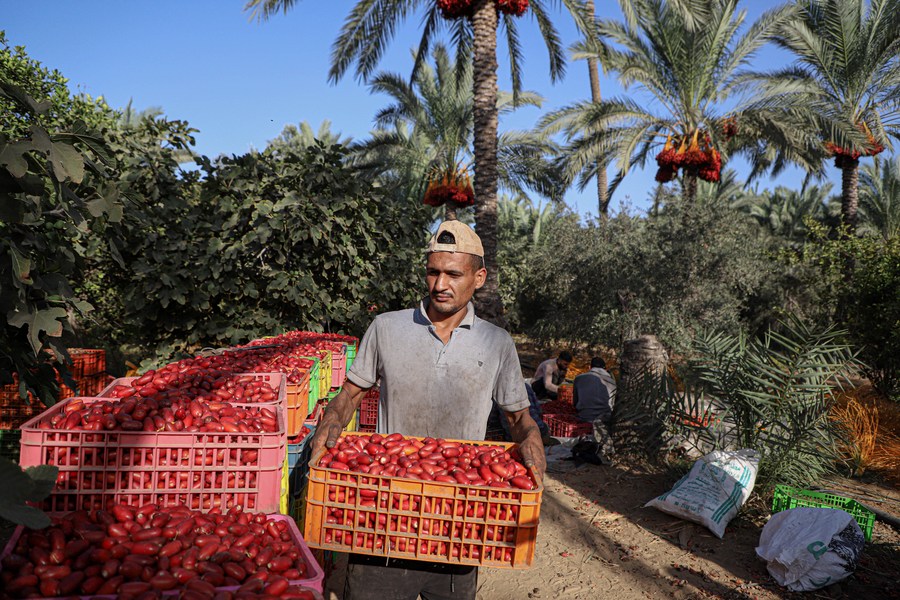 A Palestinian farmer harvests dates during the harvest season in the city of Dir al-Balah in central Gaza Strip, Oct. 2, 2022. (Photo by Rizek Abdeljawad/Xinhua)
A Palestinian farmer harvests dates during the harvest season in the city of Dir al-Balah in central Gaza Strip, Oct. 2, 2022. (Photo by Rizek Abdeljawad/Xinhua)
Hassam Mohammed, a Gaza-based farmer, told Xinhua that working as a seasonal harvester bears his hope of keeping the family afloat.
"I used to work for 12 hours a day and earn about 500-700 U.S. dollars each season," said the 29-year-old, adding that in this season, however, both working hours and wages are shrinking.
"This year, I am working for eight hours a day for ten dollars only," the father-of-three added.
In Gaza, there are about 12,000 dunams (about 1200 hectares) of agricultural land growing palm trees, about 8,500 dunams of which are fruitful, and the rest are unproductive, according to the Hamas-run agriculture ministry.
Wind and insects are the natural pollinators of palms, and their activities may vary according to broader climatic patterns. Al-Bassiouni said when the natural environment becomes unfavorable, proper human intervention is crucial for the entire pollinating and seeding process.
Islam Abu Shuaib, the Chairman of the Board of Directors of the Civil Society for Palm Development in the city, called on the Hamas-run agriculture ministry and the U.N. Food and Agriculture Organization to help brace the Gazan palm growers for a more volatile future.
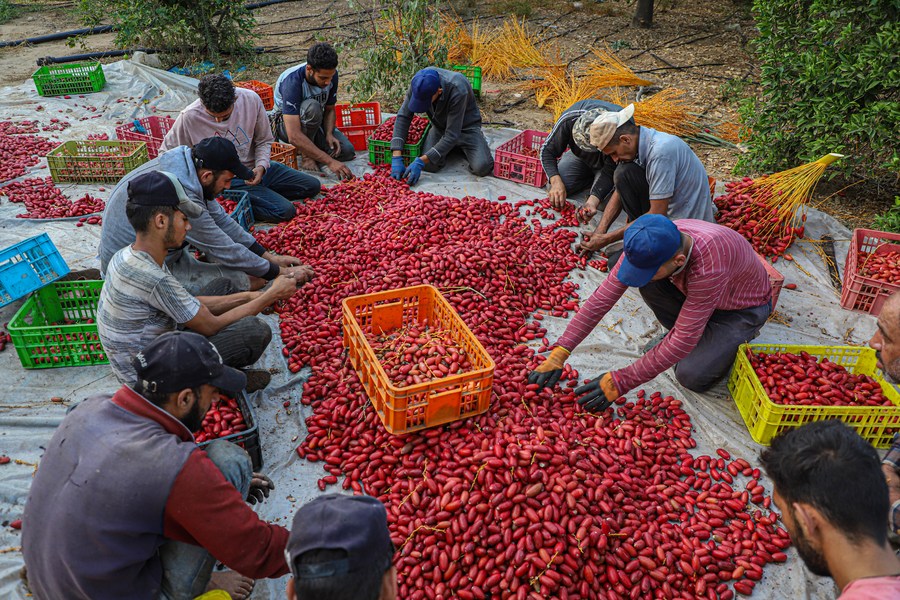 Palestinian farmers sort dates during the harvest season in the city of Dir al-Balah in central Gaza Strip, Oct. 2, 2022. (Photo by Rizek Abdeljawad/Xinhua)■
Palestinian farmers sort dates during the harvest season in the city of Dir al-Balah in central Gaza Strip, Oct. 2, 2022. (Photo by Rizek Abdeljawad/Xinhua)■


